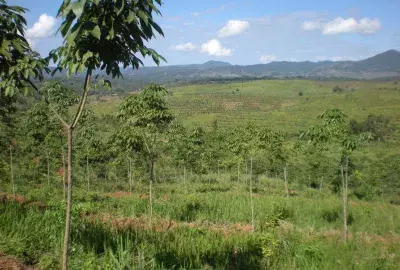Error message

This article analyzes the historical and continuing Cambodia-Thailand maritime dispute in the Overlapping Claims Area of the Gulf of Thailand, first looking into the history of the dispute to identify primary sticking points that have led to the five decade deadlock and then considering current politics, attendant risks and possibilities of finding a solution to the deadlock. The author argues that policy makers have a historic opportunity to seize the moment by using large amounts of political capital accumulated in the elections last year to break the longstanding impasse. Policy makers must pay heed to nationalisms in both countries to lessen the risks of negotiation failure. If policy makers stick to international law as the basis of their negotiations and of the narrative they present to their publics, and push forward with territorial claims that provide for equitable distribution of the disputed area’s 11 trillion cubic meters of natural gas, both countries could achieve energy security in the short and medium term.
Maritime Disputes, Gulf of Thailand, Natural Resources, Law of the Sea, UNCLOS
Photo credit: udorn1976, Getty Images
This article analyzes the historical and continuing Cambodia-Thailand maritime dispute in the Overlapping Claims Area of the Gulf of Thailand, first looking into the history of the dispute to identify primary sticking points that have led to the five decade deadlock and then considering current politics, attendant risks and possibilities of finding a solution to the deadlock. The author argues that policy makers have a historic opportunity to seize the moment by using large amounts of political capital accumulated in the elections last year to break the longstanding impasse. Policy makers must pay heed to nationalisms in both countries to lessen the risks of negotiation failure. If policy makers stick to international law as the basis of their negotiations and of the narrative they present to their publics, and push forward with territorial claims that provide for equitable distribution of the disputed area’s 11 trillion cubic meters of natural gas, both countries could achieve energy security in the short and medium term.
Maritime Disputes, Gulf of Thailand, Natural Resources, Law of the Sea, UNCLOS
Photo credit: udorn1976, Getty Images







